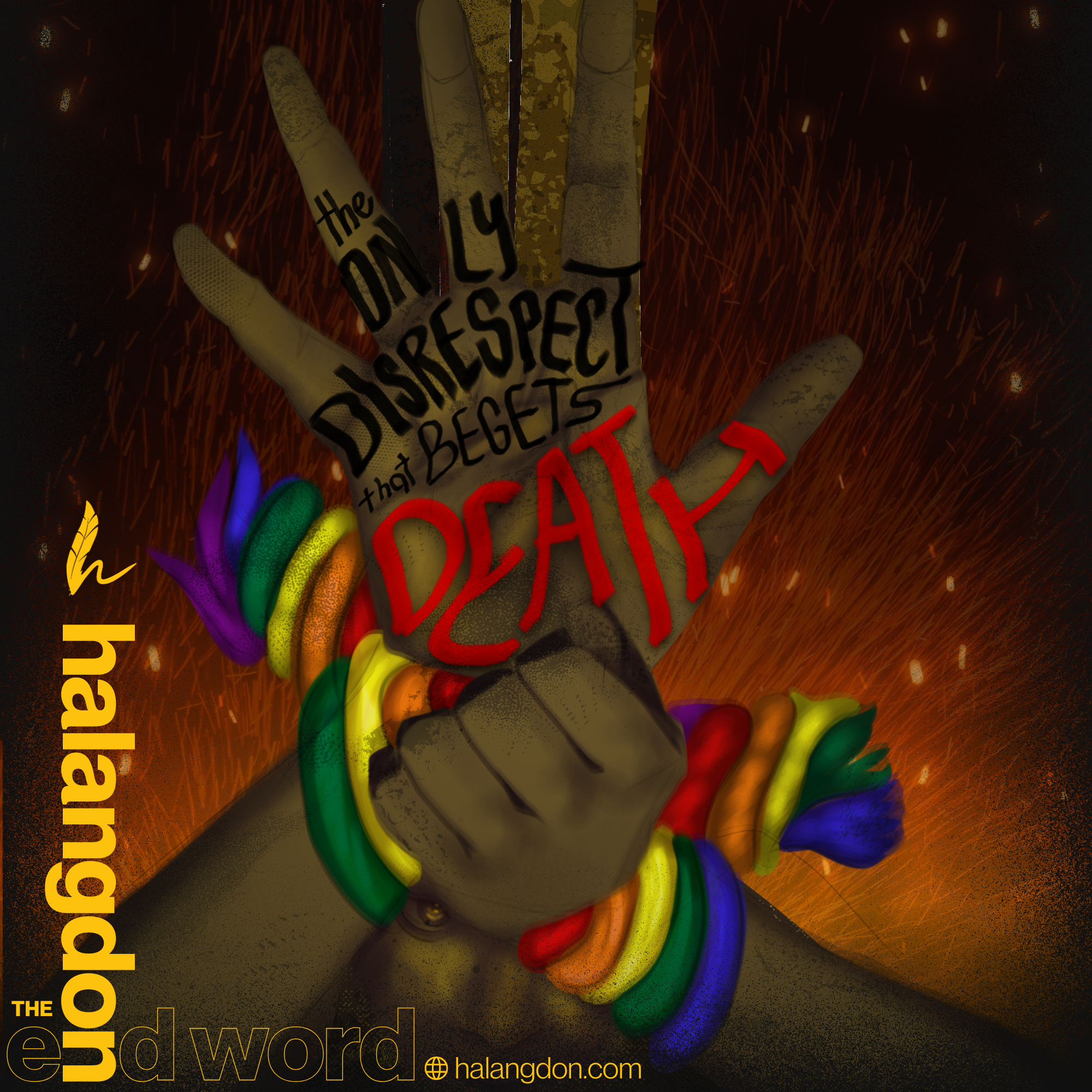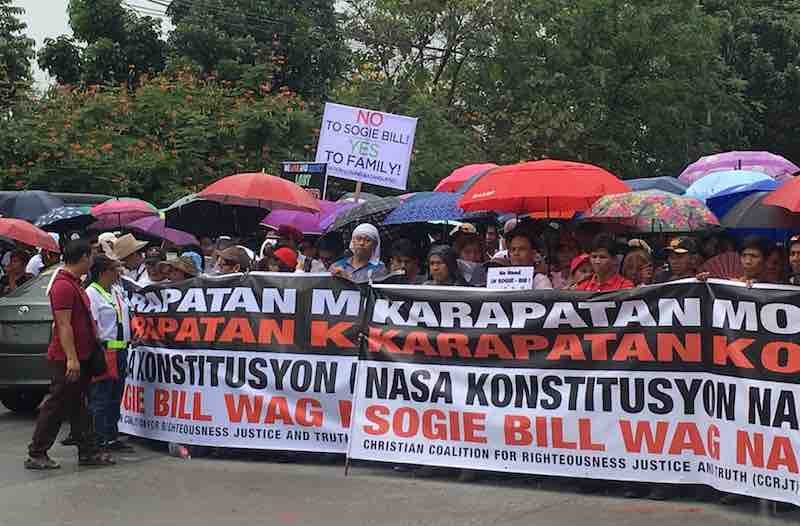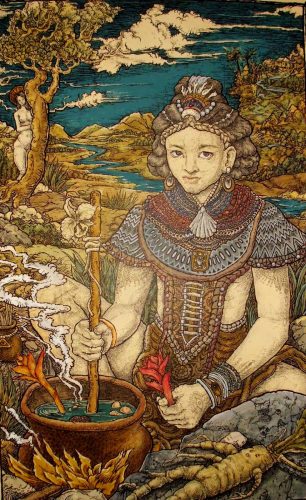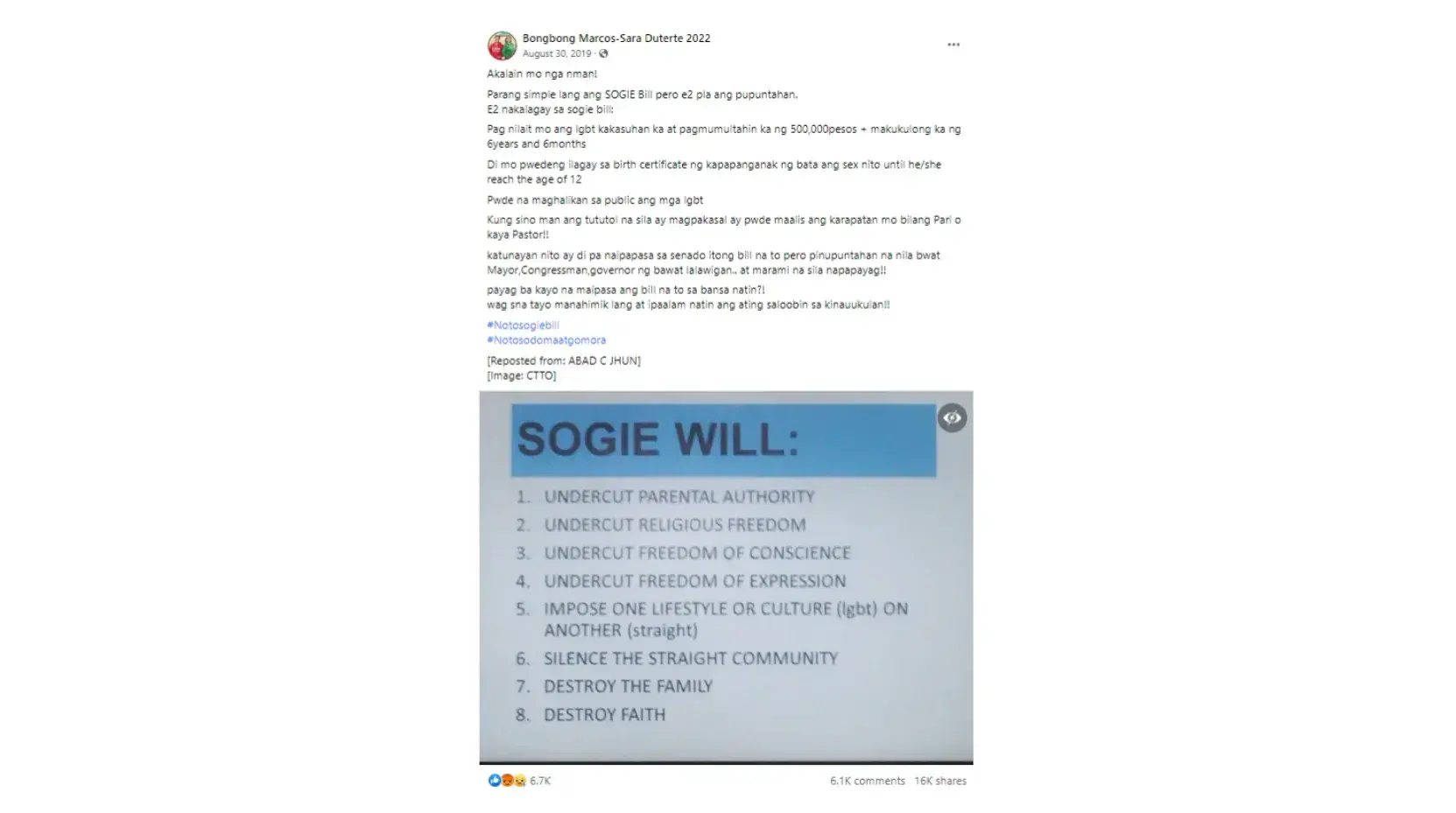
- The End Word
- June 30, 2024
- HALANGDON
- visuals byAbigail Barredo, Mel Francis Amadora
“To those accustomed to privilege, equality can feel like oppression.”
The Philippine embassy in Berlin confiscated the legal documents of a transpinay in 2010 after they found out that she was issued legal documents by the German government reflecting her preferred name and gender. A member of the Society of Transsexual Women of the Philippines (STRAP), Rio Moreno, was forced to transfer to another school to avoid being coerced into wearing male clothing. Former President Gloria Macapagal-Arroyo enacted Republic Act 9048, or the Clerical Error Law, which blocks legal document change that trans Filipinos had been able to seek prior to this enactment.
Enumerations above are few examples of the plenty of harassment and discrimination experienced by queer Filipinos. Many of the very great cases of discrimination are not held liable in the court of law. In fact, to this day, a bill protecting the LGBTQ+ community still struggles to pass even almost two decades after the year it is believed to first be filed, 2004. In February 2023, Senate majority leader Joel Villanueva reverted the bill back to committee level even after it passed the Senate committee on women, children, family relations, and gender equality in December 2022. This is the SOGIE Equality Bill: an anti-discrimination bill that criminalizes discrimination on the basis of sexual orientation, gender identity and expression.
The sole counterargument to this is Christianity—that the Philippines is a predominantly Catholic country which believes that God created only man and woman, and only a man and a woman must have relations, so such a bill is redundant at best, blasphemous at worst. Within the year that the bill made history for being the first Anti-Discriminatory Bill to be approved in the House of Representatives, The Coalition of Christians for Righteousness, Justice and the Truth immediately headed to the Senate to protest against its passing. After this protest, the Senate Majority Leader, who would later be appointed as the Senate President, Vicente “Tito” Sotto III, sternly declares that the bill will never be implemented on his watch.
But believe it or not, the cisgender, heteronormative society is the foreign concept for a massive part of the world—including the Philippines, although the land is not called Philippines then yet. Before the Christianity, some of the groups that inhabited the archipelago believed that queer people, trans people and non-binary folks are especially blessed by gods, and hold special spiritual abilities. The role of babaylans, a significant station to communities as they are the spiritual leaders, are occupied by women regardless of their sex. There are genders outside of the traditional ‘babae’ and ‘lalaki’ such as ‘binabayi’, or in modern Filipino, binabae. At this time, our ancestors treated with respect the kind of people that Europeans treated with cruelty, despite the latter claiming they were the civilized race—the superior race.
Just how important is this bill? This question is answered by just how vulnerable the LGBTQ+ are in this society. The 2015 U.S. Transgender Survey with 27,715 respondents reported high levels of mistreatment relating to their gender identity. 10% of those out to their immediate family experienced violence from a family member due to their identity, and 8% were kicked out. 29% of the respondents live along the poverty line in comparison to the 12% of Americans in the same circumstance—they suffer from 15% unemployment rate, 30% suffered homelessness at some point in their life, and the most critical information among all, 40% of the respondents have attempted suicide compared to the 4.6% of suicidal attempts among Americans. This report is written off of data from a 1st World Country with active progressive talks regarding the issue. This begs the question “how much worse is it for LGBTQ+ Filipinos?”, doesn’t it?
The highly-stigmatized status of SOGIE in the country is even fueled by misinformation. False claims that frame the bill as absurd circulate the internet. It claims that those who would insult a member of the LGBTQ+ will be fined half-a-million pesos, gender markers will be removed from birth certificates, and priests and pastors will lose their freedom to religion, among others. Despite its clear falsehood, the infographic had more than 16,000 shares on Facebook before it was fact-checked. Such fear-mongering and heightened stigma further compromises the lives of queer Filipinos.
Suppose queerness is indeed blasphemous, ultimately all it ever will be is defiance to the word of God. It does not place a gun beside someone’s head, nor does it put a noose over anyone’s neck. Will such a sin ever warrant such cruelty? Because these sinners are in fact subjected to great cruelty—continuance in the discrimination faced by queer Filipinos is a matter of life and death. To be deemed a sin all your life proves to be fatal.
Perhaps to be born to a life that may criticize God, for it may seem He made a mistake, is a disrespect that begets death—to the people that strongly believe all lives are valued by God, the only disrespect that begets death.



